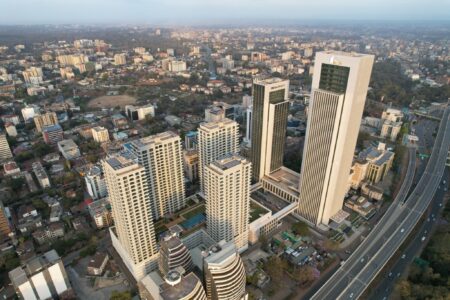- Carrefour only had two stores before the takeover
- Shoprite, the previous owner of the space, has exited Uganda after 21 years of operations
- Majid Al Futtaim is currently on an expansion spree in East Africa
French retailer Carrefour has entered into an agreement with Shoprite Checkers Uganda Limited to take over its Shoprite franchise in the country.
Under the deal, Shoprite will transfer six of its Ugandan stores’ leases to Majid Al Futtaim, Carrefour’s parent company, by end of year.
Majid Al Futtaim currently operates two stores in Uganda, under the Carrefour banner.
Following the implementation of the agreement, Majid Al Futtaim will expand its footprint to eight Carrefour stores.
Commenting on the deal, Hani Weiss, CEO of Majid Al Futtaim Retail said: “We welcome the opportunity to bring our unique Carrefour offering of unbeatable value range, international standards to more customers across Uganda.
He added that the agreement represents their continued investment in East Africa.
“We look forward to strengthening our offering in the region and supporting local talent through employment and career development opportunities,” he added.
Majid Al Futtaim launched its first Carrefour store in Uganda in December 2019 in Kampala’s Oasis Mall, and in March 2021 opened its second store in Naalya.
Shoprite Exits Uganda
The takeover comes at a time when Shoprite has confirmed that it is exiting the Ugandan market after 21 years of operations.
Last month, the South African company announced that it was withdrawing from Uganda and Madagascar.
According to a report by Reuters, Shoprite has been reviewing its long-term options across Africa over the past year, occasioned by challenges including currency devaluations, lower commodity prices and high inflation that has hit household incomes and weighed on earnings.
Commenting on the issue, Peter Hirst, senior analyst at Euromonitor International told iol.co.za that the Ugandan exit comes also on the back of decreased footfall, which was decreased significantly in Shoprite outlets as Ugandans reverted to ”buying local” in 2020, resulting in under-performance in the five outlets across the country.
“This trend benefited traditional grocery retailers, which boast lower average unit prices, providing relief to a struggling consumer base,” Hirst said.
While announcing its exit from Kenya, the retailer said the market had continued to underperform, relative to their return requirements.
“Post year-end, one store has been closed given the ensuing economic impact of Covid-19,” Business Daily quoted the company.

Carrefour’s Expansion in Kenya
Carrefour’s entry into Uganda comes amid the continued expansion in Kenya.
The chain recently opened a new outlet at the Southfield Mall in Embakasi Nairobi, taking up about 32,000 SQFT of retail space on two floors previously occupied by Choppies Supermarket, bringing its total number of outlets to 14, with 12 being within Nairobi county and two in Mombasa county.
The new outlet is expected to serve the residents of Imara Daima, Nyayo Estate and Syokimau with plans to transform into a hypermarket by December 2021.
The company is also planning on opening two new stores in Kisumu’s United Mall and Mega City in spaces previously occupied by troubled Nakumatt and Tuskys supermarkets, respectively.
The retailer has been on an aggressive expansion having opened 5 branches in 2021 taking on rivals such as QuickMart and Naivas which have each opened 4 and 6 branches in 2021, respectively.
Economic analysts say the decision to take up space in Embakasi is supported by various reasons among them accessibility of the area through major roads such as Mombasa Road and the exit of Choppies, leaving prime retail space for uptake.
It was also informed by the need to reach out to the population in the area by offering e-commerce services through online sale and delivery services.
Early this year, Carrefour also opened an outlet at Centre Point Mall in Diani, Kwale County, taking up approximately 10,000 SQFT of space previously occupied by retail giant Nakumatt, which has since fallen.
According to analysts from Cytonn Investment, Kwale had a population of 866,820 as of 2019, which was a 33.4% growth from the 649,931 recorded in 2009.
The County also has a growing middle class with increased consumer purchasing power. The region is also recognized as a major tourist destination in Kenya, due to its rich cultural heritage and proximity to the Indian Ocean.











